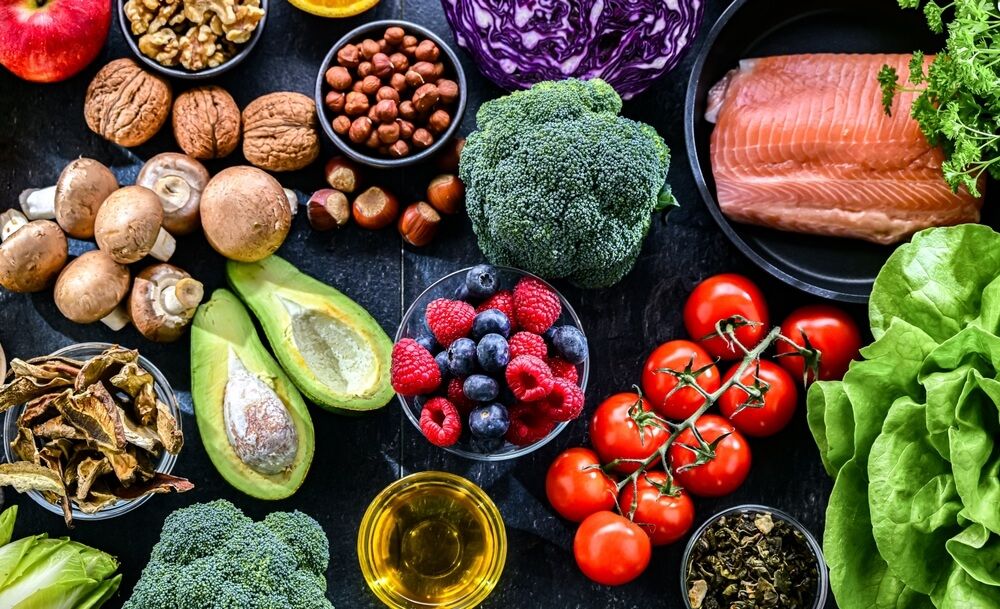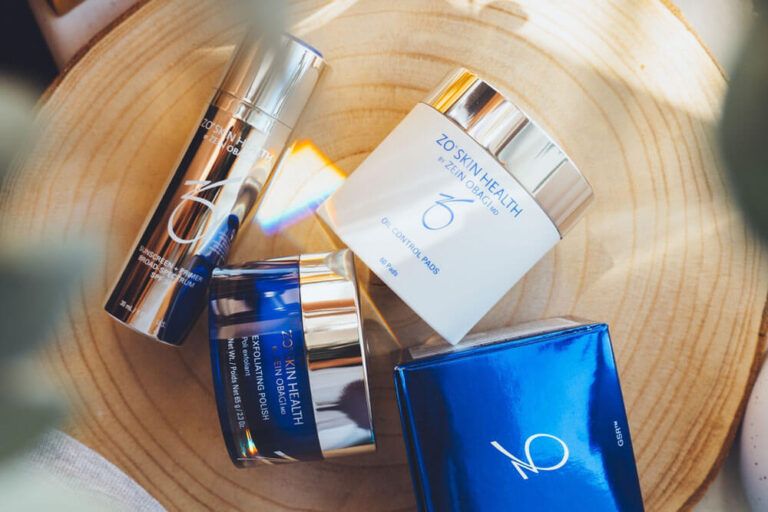Inflammation is your body’s natural response to injury or illness, but when it becomes chronic, it can lead to a host of health issues, from joint pain and fatigue to stubborn skin problems like redness and breakouts. Fortunately, one of the most powerful tools for calming inflammation starts on your plate. The foods you eat every day can either fuel or fight inflammation, making your diet a key player in how you feel, age, and glow. In this blog, we’ll explore the top anti-inflammatory foods you can easily incorporate into your daily routine, as well as how they can support your overall wellness and amplify the results of your favorite medispa treatments.
In This Blog:
- Understanding Inflammation
- The Link Between Diet and Inflammation
- Top Anti-Inflammatory Foods to Add to Your Diet
- Foods to Limit or Avoid
- How Anti-Inflammatory Eating Supports Your Medispa Goals
Understanding Inflammation
Inflammation is the body’s way of protecting itself from harm. When you cut your finger or catch a cold, your immune system kicks into gear, triggering acute inflammation to help you heal. This type of inflammation is short-term and necessary for recovery. However, problems arise when inflammation becomes chronic: a low-grade, ongoing response that can silently damage tissues and disrupt normal body functions.
Chronic inflammation is often fueled by factors such as poor diet, stress, lack of exercise, exposure to environmental toxins, and insufficient sleep. Over time, it’s linked to serious health conditions like heart disease, diabetes, arthritis, and even skin disorders like acne, eczema, and premature aging.
You may not always see or feel chronic inflammation, but signs can include:
- Persistent fatigue
- Digestive issues like bloating or gas
- Brain fog
- Skin flare-ups or dull complexion
- Aches and pains without injury
By understanding what causes chronic inflammation and how it shows up in the body, you can take proactive steps, starting with your diet, to support long-term wellness and a clearer, healthier complexion.
The Link Between Diet and Inflammation
What you eat plays a powerful role in either fueling or fighting inflammation. Some foods trigger the body’s inflammatory response, especially those high in sugar, refined carbs, and unhealthy fats, while others help calm it down by delivering essential nutrients and antioxidants that protect your cells.
An anti-inflammatory diet emphasizes whole, nutrient-dense foods that provide:
- Antioxidants, which neutralize free radicals and reduce cellular stress
- Omega-3 fatty acids, which help regulate the immune response
- Fiber, which supports gut health and lowers inflammation markers
On the other hand, highly processed foods, excessive sugar, and trans fats can disrupt your metabolism, irritate the gut lining, and increase inflammatory proteins in the body. Over time, this imbalance can show up in the form of low energy, breakouts, puffiness, and premature aging of the skin.
By choosing anti-inflammatory foods, you’re not only supporting your internal health, you’re also enhancing the appearance of your skin, improving mood, and laying the groundwork for better long-term vitality.
Top Anti-Inflammatory Foods to Add to Your Diet
Incorporating the right foods into your daily meals can make a noticeable difference in how your body feels and how your skin looks. Here are some of the most effective anti-inflammatory foods to support whole-body wellness and a radiant complexion:
Fatty Fish (Salmon, Mackerel, Sardines)
These fish are rich in omega-3 fatty acids, which are known for their powerful anti-inflammatory effects. Omega-3s help reduce levels of inflammatory markers in the body and support heart, brain, and skin health.
Leafy Greens (Spinach, Kale, Swiss Chard)
Dark leafy greens are loaded with vitamins, minerals, and antioxidants like vitamin C, beta carotene, and flavonoids. These nutrients protect against cell damage and help reduce inflammation at the cellular level.
Berries (Blueberries, Strawberries, Blackberries)
Berries are high in polyphenols and vitamin C, which combat oxidative stress and inflammation. They also support collagen production, making them a great addition for skin health.
Turmeric
Turmeric contains curcumin, a natural anti-inflammatory compound that has been shown to reduce inflammation and improve symptoms of arthritis and other chronic conditions. Pair it with black pepper to enhance absorption.
Extra Virgin Olive Oil
A staple of the Mediterranean diet, olive oil contains oleocanthal, a compound with anti-inflammatory properties similar to ibuprofen. It also supports heart and skin health.
Nuts (Almonds, Walnuts)
Nuts are packed with healthy fats, fiber, and vitamin E, which help combat inflammation and oxidative stress. Walnuts also provide a plant-based source of omega-3s.
Green Tea
This antioxidant-rich beverage contains EGCG (epigallocatechin gallate), a compound known for its ability to reduce inflammation and protect cells from damage. It’s also great for boosting metabolism and supporting clear skin.
Tomatoes
Tomatoes are an excellent source of lycopene, a powerful antioxidant that helps reduce inflammation and protect against UV-induced skin damage.
Garlic and Onions
Both are high in sulfur compounds that boost immune function and reduce inflammatory pathways. They also add flavor to meals without the need for inflammatory ingredients like excess salt or sugar.
Whole Grains (Quinoa, Brown Rice, Oats)
Unlike refined grains, whole grains are rich in fiber, which helps improve gut health and regulate inflammation. They also help keep blood sugar levels stable, reducing inflammatory spikes.
By adding these inflammation-fighting foods to your diet, you’re giving your body the nutrients it needs to heal, protect, and thrive—inside and out.
Foods to Limit or Avoid
Just as some foods help reduce inflammation, others can worsen it, especially when consumed frequently or in large amounts. These pro-inflammatory foods can trigger the body’s stress response, damage gut health, and lead to spikes in blood sugar and insulin levels, all of which contribute to chronic inflammation.
Here are the top foods to limit or avoid for an anti-inflammatory lifestyle:
Refined Carbohydrates
Foods like white bread, pastries, and many packaged snacks are made with refined flours that lack fiber and nutrients. These can cause blood sugar spikes, leading to increased inflammation.
Added Sugars
Sugary drinks, candies, and desserts are high in added sugars that promote the release of inflammatory cytokines. They also contribute to weight gain and poor skin health.
Processed Meats
Sausages, bacon, hot dogs, and deli meats often contain preservatives and advanced glycation end products (AGEs) that are linked to higher inflammation levels and chronic disease.
Fried and Fast Foods
These are typically high in trans fats and refined oils that can irritate the body’s inflammatory pathways. They may also disrupt gut health and promote skin issues like acne.
Excess Alcohol
Heavy or regular alcohol consumption can damage the liver and gut lining, promoting systemic inflammation. It also dehydrates the skin and may worsen existing skin conditions.
Artificial Ingredients and Preservatives
Many packaged foods contain artificial additives, colors, and flavorings that the body doesn’t recognize as food, leading to an immune reaction and inflammation in some individuals.
By being mindful of these inflammation-promoting foods and choosing healthier alternatives, you can better support your immune system, improve your skin’s clarity and tone, and feel more energized on a daily basis.
How Anti-Inflammatory Eating Supports Your Medispa Goals
What you put on your skin matters, but what you put in your body is just as important. An anti-inflammatory diet works hand in hand with your medispa treatments, helping to optimize results and promote lasting beauty from the inside out.
Enhances Skin Treatments
Anti-inflammatory foods support skin healing and regeneration, making treatments like facials, microneedling, and laser therapy more effective. Nutrient-rich foods supply the building blocks your skin needs to repair and glow.
Reduces Redness and Breakouts
Chronic inflammation can contribute to acne, rosacea, and skin sensitivity. By reducing inflammatory triggers in your diet, you may see clearer, calmer skin with fewer flare-ups between treatments.
Slows the Signs of Aging
Foods high in antioxidants and omega-3s help fight free radical damage, which contributes to fine lines, wrinkles, and skin laxity. When paired with anti-aging treatments, your skin can appear smoother, brighter, and more youthful.
Supports a Healthy Weight and Energy Levels
Many medispa clients seek treatments for body contouring or fat reduction. Anti-inflammatory eating helps regulate blood sugar, reduce bloating, and maintain a healthy weight—maximizing the benefits of services like body sculpting and IV therapy.
Boosts Immune Function and Overall Wellness
A strong immune system is key to healing well after treatments and preventing skin infections or inflammation. Anti-inflammatory foods support gut health and immunity, helping you recover faster and feel better overall.
By aligning your nutrition with your medispa goals, you create a holistic approach to beauty and wellness, one that radiates from the inside out.
Conclusion
Fighting inflammation through your diet is one of the most powerful steps you can take to enhance your overall health, support glowing skin, and maximize the results of your favorite medispa treatments. By incorporating nutrient-rich, anti-inflammatory foods into your daily routine, you’re not only nourishing your body, you’re also investing in long-term wellness and beauty from within. At Modern Image Aesthetics & Wellness Boutique Medspa, we believe in a holistic approach to skincare and self-care. Ready to elevate your routine? Book a consultation today and let our expert team help you pair personalized treatments with lifestyle guidance for radiant, lasting results.














